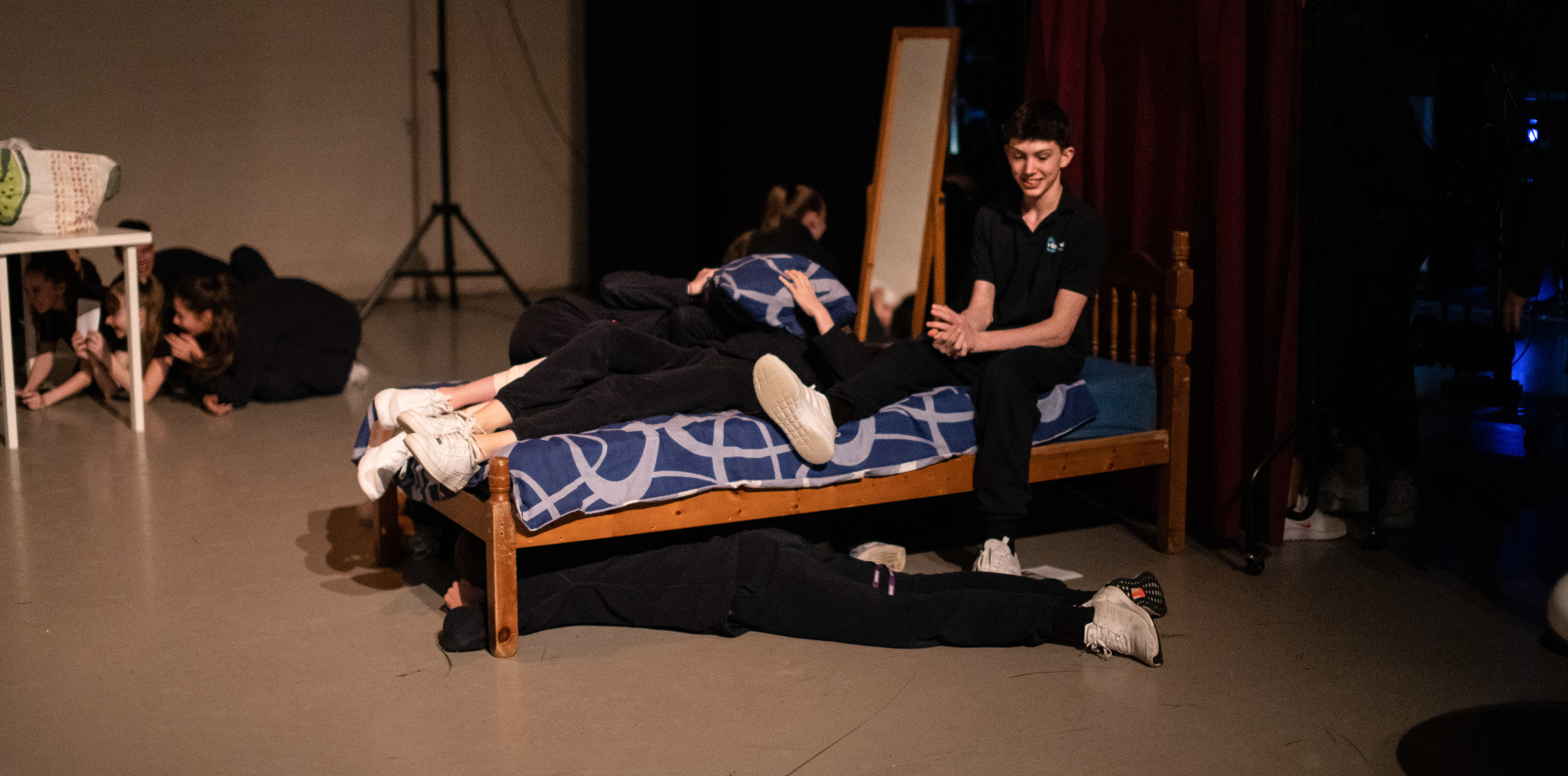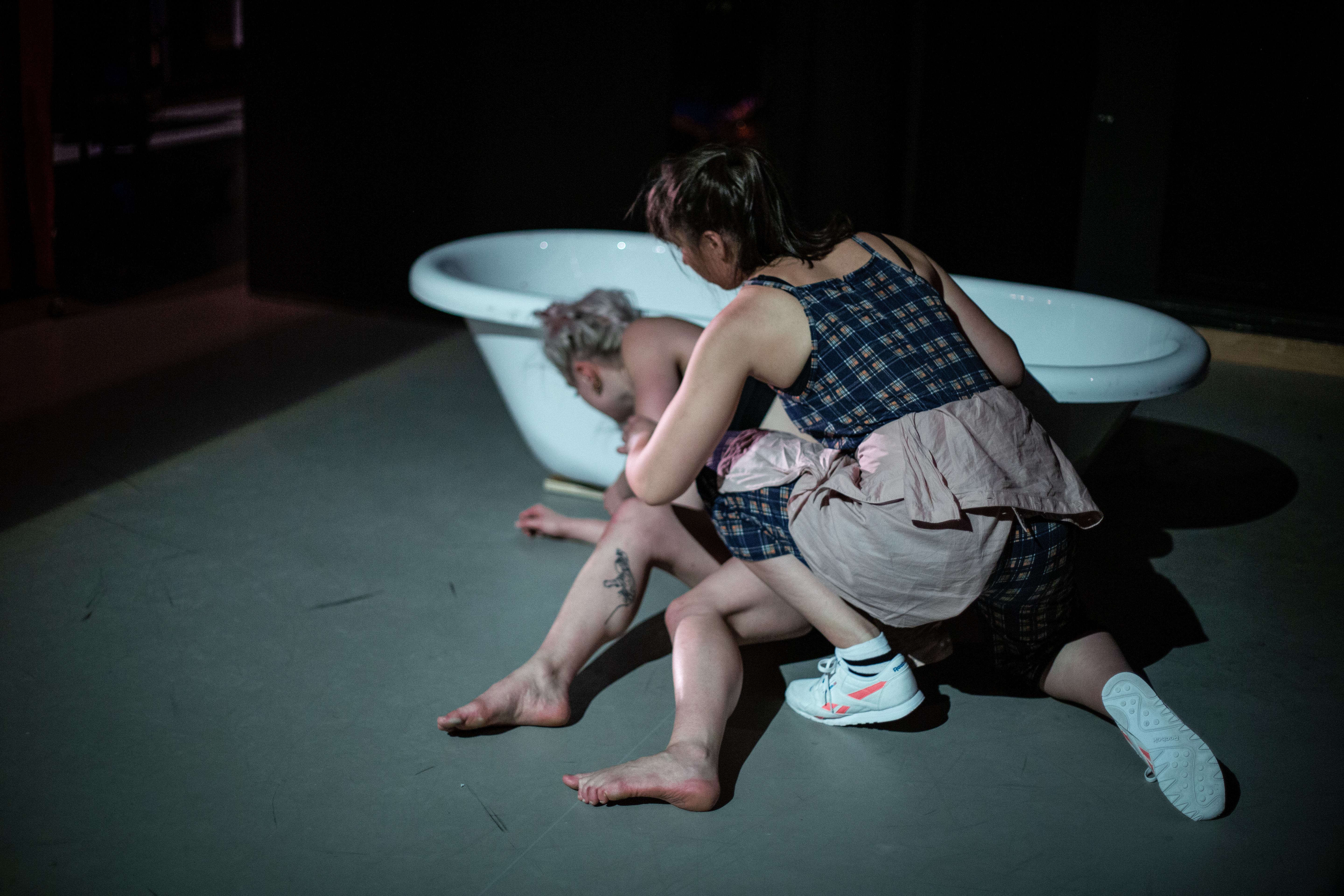Words by Katie Hagan
‘I thought 2020 was going to be it!’ seems to be a recurring message I’m hearing from a few early-to-mid choreographers right now, who were on the precipice of something significant before the world was greeted by this unwelcomed contagion.
It was a sentiment shared by Johnny Autin, creator of Birmingham-based company Autin Dance Theatre (ADT) and current Artist in Residence at DanceXchange. Johnny has sought alternate ways to make and exhibit work in order to keep the art buoyant and his company flourishing. We caught up with him ahead of the digital premiere of ADT’s sex ed’ phenomenon A Posi+ive Life, to talk about the stories behind the piece, and the future moves Autin Dance Theatre plans to take.
Q: How has the coronavirus affected your work?
A: I genuinely thought 2020 was going to be my year! There was so much momentum. ADT had a lot of projects in the pipeline, and we were going to tour A Posi+ive Life again next year. The virus has changed everything.
The arts sector was the first to close and will probably be the last to reopen, and that is very sad. The upside is that we have had to be creative — which is what we are good at!
Q: How did Autin Dance Theatre begin?
A: It started in 2013 as a vehicle for my choreographic work after I had been touring with various companies in the UK and abroad for around 10 years. I guess I needed a structure to develop my voice and sharpen my tools and practices.
It started with a 2013/14 solo called Taksim Square, which was made in response to the Arab Spring and the uprisings in the Turkish cities Ankara and Istanbul. Some of my friends were living there during this period and I was vicariously affected by the brutality from the police and the suppression of justice.
ADT draws on different dance styles; physical theatre, contemporary dance and dance theatre. Our work is character-driven and very physical. I would actually say that my training as a law student feeds into my desire to make work which tackles inequalities! I think it is important to fight for social justice.
Q: Would you say ADT makes more conceptual work?
A: I always want to tell real stories about people and events; stories that speak up for the underdog. All of our work is researched and released for consultation to the project teams. We also work with the communities and people who are involved in any narratives that we decide to tell. A Posi+ive Life was very much informed by two years of research with young people in youth centres and secondary schools.

Q: Sex education in secondary schools is pretty dire. Was this the reason for creating the piece?
A: Definitely! Sex education isn’t always communicated in the right way by schools, even though it’s a human right to know the things we ought to. Sexual health is treated so strangely in the UK. Maybe it has been the combination of the British stiff-upper-lip culture, and of course certain traumas such as the Section 28 act (1988-2003) which prevented any education on homosexuality.
A Posi+ive Life has a connection to my personal story. I was diagnosed with HIV when I was 26 in 2011 and through my journey of coming to terms with the illness, I learnt a lot about my mental and physical wellbeing, and sexual health more broadly. When I heard other people’s stories, I realised this stigma could be something I could explore through dance theatre.
The work has evolved from a piece about HIV into its final form as a performance that demystifies all the obscurities around sex education. Now, A Posi+ive Life is an immersive piece full of different textures which brings to light personal stories on love, sex, relationships, consent, body-shaming and cyberbullying. It’s a crazy project – kind of like Punchdrunk meets Trainspotting!
The stage is transformed into a house, where audience members in separate groups can each follow one of the six different characters to hear their stories. We speak about hard subjects yet manage to resolve them in a way that feels wholesome and in touch with our wellbeing. We aim to advocate and inspire people with their choices.Â
Unfortunately, dance is not always a priority in schools either. It’s sad that we’ll see future generations disinterested in the theatre. It is why it felt really important to create a sex ed’ piece which told the stories through dance theatre. Its power can be immense, and it brings different ways of thinking to the surface.
Q: How did you shift from dark to light moments?
A: Everything is guided by the rhythm of a house party; the initial nervousness which then leads to drunken euphoria, and then that big melancholy comedown. We tread deeper into more emotional moments at a time where it feels right. This bond between the performers and audience subsequently enables us to speak about taboos within a safe space.
This project has toured to youth centres and secondary schools around the UK for the past couple of years. It was really important for us to create an inclusive piece which would enable young people to trust us. Of course, we also had to safeguard them. We were totally transparent from the outset, informing them that the story is fictional and there may be moments which trigger certain memories.
We play on stereotypes within this piece in order to condemn them. One of the characters is a virgin who will remain one until her wedding day, the other is a man who is the epitome of toxic masculinity. He isn’t a likeable character and gets too forceful with a girl at the party, who is routinely slut shamed.

Q: What’s next for you?
A: I am still developing my work Square One which I performed at Resolution ’20, The Place. I’m also committed to intercultural work, so I have quite a few connections in East Africa which I would like to explore.
I think the environment will continue to be a priority. ADT had originally planned to create an outdoor work called Out of the Deep Blue this summer, but we have had to adapt our initial approach and make a series of educational, participatory short films. I am definitely interested in pursuing green theatre or eco-friendly practices. How can we create shows which leave the environment in a better state than how we found it?
A Posi+ive Life premieres on the 29th May at 4pm as part of Dance Exchange’s ‘Dance Insights’. Join the team for a live post-show Q&A from 5-6pm! All images: @autindt ©nucisdesigns.
